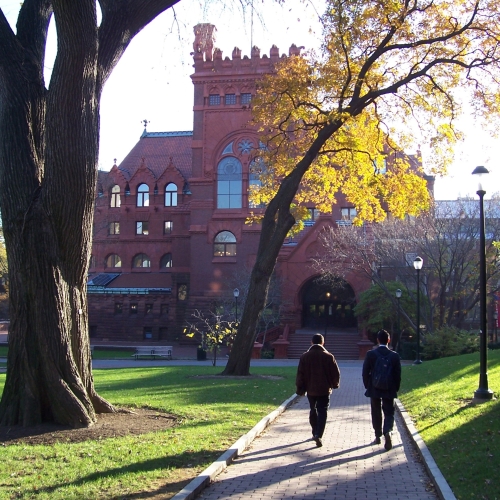News ItemBack to News

Penn Health-Tech Unveils 11 New Teams in 2024 Accelerator Cohort
Philadelphia, July 26, 2024— Penn Health-Tech, the University of Pennsylvania’s center for medical device innovation, reveals eleven teams stepping up to the plate this year as part of the Health Tech Accelerator 2024-2025 cohort.
Penn Health-Tech (PHT) aims to transform innovative ideas from the University and its health systems into market-ready products. These novel technologies address unmet clinical needs and offer novel healthcare solutions. Since 2017, PHT has supported 96 teams developing early-stage technologies, providing over $2.7 million in funding, hands-on project management, expert guidance, and essential resources. After graduating, Accelerator alumni have secured over $113 million in further funding from various sources, including government grants, corporate investments, and venture capital.
PHT’s Health-Tech Accelerator (HTA) is a year-long, cohort based program that accelerates the development of novel health technologies via expert advising, programs and workshops, and targeted funding. It supports faculty and staff from the University of Pennsylvania, Penn Medicine, and the Children’s Hospital of Philadelphia (CHOP).
Incoming participant Katie Weeks reflects on her experiences so far and expresses anticipation for the year ahead. “As an engineer passionate about product development, I've taken many ideas from paper to prototype, but the journey to commercialization has always fascinated me. The Penn Health-Tech bootcamp provided invaluable, real-world insights into medical device commercialization. I'm eager to apply these lessons to advance AMP-Vent, focusing on understanding the ventilator landscape, defining user needs, and developing concept models to shape future technical development.”
Get to know the 2024 HTA cohort lineup:
Alpha-c: Personalized responsive deep brain stimulation (DBS) for treatment-refractory pathological compulsivity
Casey Halpern, MD (UPenn)
Liming Qiu, MD (UPenn)
Younghoon Nho, PhD (UPenn)
AMP-Vent: High-tech, low-cost ventilation for austere environments and underserved communities
Katie Weeks, BEng (CHOP)
Todd Kilbaugh, MD (CHOP)
Rodrigo Menezes Forti, PhD (CHOP)
Cerespectus™: Microcatheter & Navigation Platform Technology for Targeted CNS Therapy Delivery
Bryan Pukenas, MD (UPenn)
Kamna Giare-Patel, MS (Cerespectus)
CogSpeech: Digital speech assessment for monitoring behavioral symptoms in dementia
Naomi Nevler, MD (UPenn)
Sunghye Cho, PhD (UPenn)
Yoonduk Kim (UPenn)
Cranio Care: A single-stage bioresorbable craniofacial distractor
Alexander Tucker, MD (CHOP)
Shu Yang, PhD (UPenn)
Jordan Swanson, MD (CHOP)
FractSure/Osetomics: Blood Test for early prognosis of long-bone fracture healing
Samir Mehta, MD (UPenn)
Annamarie Horan, MPA, PhD (UPenn)
Graftable: Oxygen microparticles for regenerative wound healing
Daeyeon Lee, PhD (UPenn)
Sarah Ebmeier, MS (Graftable)
Oren Friedman, MD (UPenn)
Sergei Vinogradov, PhD (UPenn)
CK Yeh, PhD Candidate (UPenn)
Mending the Eardrum: Decellularized cartilage for tympanoplasty
Riccardo Gottardi, PhD (CHOP)
John Germiller, MD, PhD (CHOP)
Narintadeach Charoensombut, PhD (UPenn)
Dana Ragbirsingh, MS (UPenn)
Ryan Friedman (UPenn)
NOM: Non-invasive neurometabolic optical monitor to improve pediatric brain health
Rodrigo Menezes Forti, PhD (CHOP)
Katie Weeks (CHOP)
Wesley Baker, PhD (CHOP)
Tiffany Ko, PhD (CHOP)
Todd Kilbaugh, MD (CHOP)
RADHawk™: An AI-Based Radiology Expert Advisor
Janet Reid, MD, FRCPC, MSEd (CHOP)
Julian Lopez Rippe, MD (CHOP)
ZeoDrop: Point of Care device to accurately and quickly determine birth blood loss
Stefanie Modri, MSN, RNC-MNN, C-OB (UPenn)
Rebecca Hoffman, PhD (UPenn)
Joshua Buser, PhD
Following the introduction of the new cohort, we are pleased to announce that applications for next year’s Accelerator program will open in mid-September. Selected teams will unlock:
- Up to $75K in pilot funding based on milestone-marked project progression
- Rigorous, hands-on advising tailored to their development stage
- Comprehensive project management to help navigate technical de-risking (prototype development, proof of concept) and/or commercial de-risking (setting development milestones, clinical strategy, regulatory strategy, reimbursement strategy)
- Option to join a 4-month strategic technology development and innovation education program known as the HTA Bootcamp, led by Dr. Katie Reuther, Executive Director of Penn Health-Tech